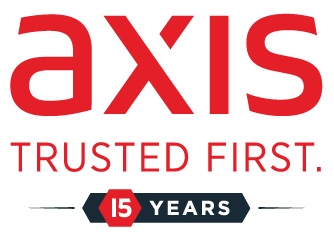The inclusion of Mauritius on the Financial Action Task Force (FATF) list of jurisdictions under increased monitoring comes as a surprise given the gargantuan progress that Mauritius has made over the past years.
In July 2018, the Eastern and Southern Africa Anti-Money Laundering Group (ESAAMLG) issued its Mutual Evaluation Report (MER) which identified 58 recommended actions to improve the level of effectiveness of the Anti-Money Laundering and Countering the Financing of Terrorism (AML/CFT) regime. Following the issuance of the report, Mauritius transitioned into a one-year observation period running from October 2018 to October 2019, at the end of which it had to demonstrate that it had made positive and tangible progress on all the 58 recommended actions in the MER.
In November 2019, Mauritius submitted its post observation period report to the Africa/Middle East Joint Group of the FATF to review the progress made in addressing the 58 recommended actions. The Joint Group deliberated that although Mauritius had made positive and tangible progress on 53 of the 58 recommended actions, the Group still felt that there were additional steps to be taken in respect of the outstanding action points.
In this paper, we examine 4 key questions that are regularly put to us by clients.
A. What are the areas that call for reform?
The FATF has identified five strategic deficiencies in the Mauritian AML/CFT regime and Mauritius will work to implement its action plan, including by:
- demonstrating that the supervisors of its global business sector and Designated Non-Financial Businesses and Professions (DNFBPs) implement risk-based supervision;
- ensuring the access to accurate basic and beneficial ownership information by competent authorities in a timely manner;
- demonstrating that Law Enforcement Agencies (LEAs) have capacity to conduct money laundering investigations, including parallel financial investigations and complex cases;
- implementing a risk based approach for supervision of its Non-Profit Organisations (NPO) sector to prevent abuse for TF purposes, and
- demonstrating the adequate implementation of targeted financial sanctions through outreach and supervision.
B. What does this mean in terms of the level of due diligence that needs to be exercised?
- A distinction should be made between “jurisdictions under increased monitoring” i.e. the “grey list” and “High-risk jurisdictions subject to a call for action” i.e. the “black list”.
- The inclusion on the “grey list” does not impact on the level of due diligence to be done. Instead, this is something for a transaction party which has a Mauritian counter-party to take into account.
- The FATF does not call for enhanced due diligence measures to be exercised in relation to Mauritius but it does goes on to say that it encourages its members to take this into account in their risk analysis.
C. When the FATF says that it encourages it members to take this into account does this not indirectly mean that enhanced due diligence should be undertaken?
No, the FATF does not call for enhanced due diligence measures to be exercised in relation to Mauritius and this implies directly or indirectly and in whichever form. However, the potential ramifications could be that an entity having a Mauritian counterparty might probably not be able to carry out simplified/reduced due diligence measures.
D. How has the international community reacted?
The press release of the Securities and Exchange Board of India reiterates the position of FATF i.e. that enhanced due diligence should not be applied to Mauritius although the risk analysis exercise should take into account that Mauritius is on the list of jurisdictions under increased monitoring. More importantly, the SEBI press release posits a very strong affirmation – that Foreign Portfolio Investments from Mauritius will continue to be eligible for FPI Registration with increased monitoring as per FATF norms.
When the FATF places a jurisdiction under increased monitoring, it means the country has committed to resolve swiftly the identified strategic deficiencies within agreed timeframes and is subject to increased monitoring. This list is often externally referred to as the “grey list.” It is comforting to know that the Government of Mauritius is already taking measures to comply with the recommendations and the Financial Services Commission is also prioritising its work in order to address all the of the action points recommended for the Global Business Sector ahead of the timeline. The recent years has witnessed Mauritius changing the regulatory framework to comply with the international standards and being a good student it is expected to do what it takes to be out of the “grey list.”
“This is a joint Axis & BLCR Newsbite”
This article should not be construed as legal advice and is made for information purposes only. Should you require legal advice on AML/CFT related matters, please contact chambers@blc.mu.





